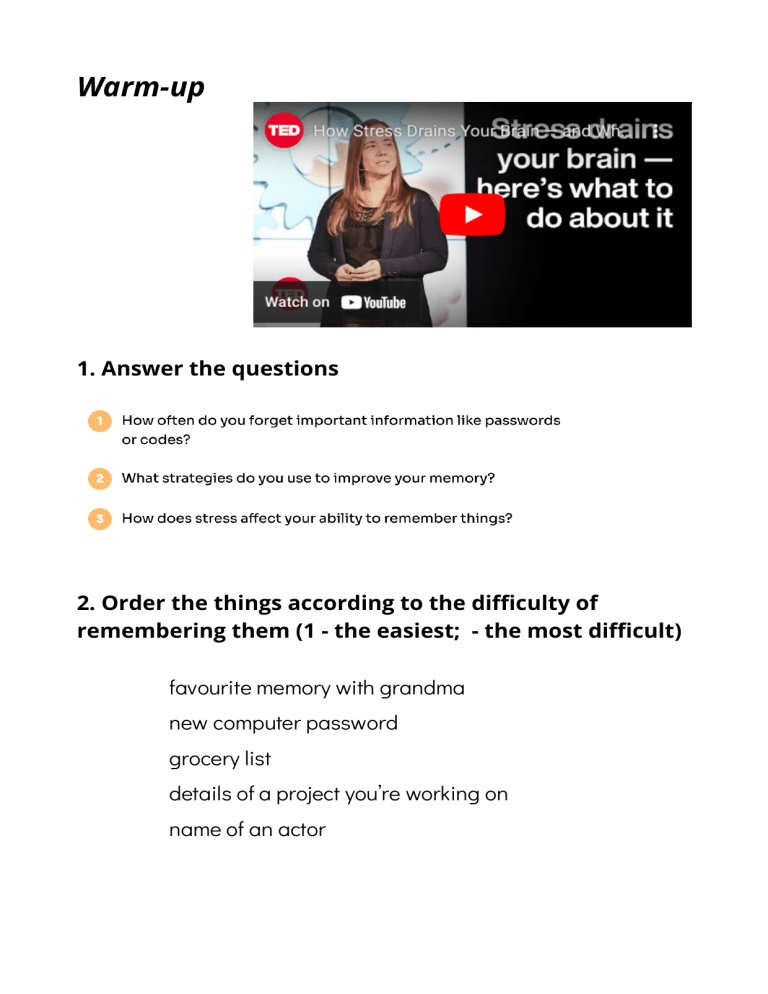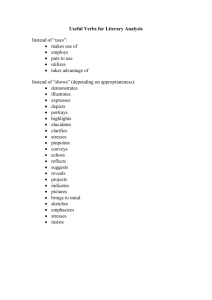
Warm-up 1. Answer the questions 2. Order the things according to the difficulty of remembering them (1 - the easiest; - the most difficult) favourite memory with grandma new computer password grocery list details of a project you’re working on name of an actor 3. Match phrases with their definitions 1. beat yourself up for a) destroyed or badly damaged by fire; 2. mess up b) you are sure that you know it but 3. burnt out you cannot remember it; 4. to be on the tip of one’s tongue c) unexpectedly; without warning; d) to fail at something or do it badly; 5. out of the blue e) to blame yourself for doing something 4. Fill in the gaps beating yourself up burnt out on the tip of your tongue mess up out of the blue When our brains are doing 400 things, we're more likely to make a memory error, like forgetting a colleague’s name in a meeting or missing a key part of your presentation, and then _______________ for the rest of the day ____ making that mistake. Which brings us to another brain-draining habit that can _____________ your memory and make it hard to remember where you left your keys: stress. Between emails and phone calls and Zoom meetings and project deadlines, we’re coming home from work feeling tired, and our brains are ______________. Have you ever been trying to think of the name of a movie or an actor, and it's right __________________________, but you can't quite remember it? And then four hours later, you're driving home from work and that name comes to you _______________________? Discussion 1. Answer the questions 2. True or False? 3. Put the word in capitals in the correct form 1. A number of factors in our __________ lives can impact our memory efficiency. (DAY) 2. There was a _______ neuropsychology case study. (FAME) 3. They were less severe and less ___________. (FREQUENCY) 4. HM became unable to ______________ learn new things. (CONSCIOUS) 5. Our memory storage is pretty ____________. (IMPRESS) 6. All those day-to-day stresses, _______________ and deadlines take up brain space. (PRESS) Listening Listen to the video (05:54 - 6:40) and fill in the gaps We know all those day-to-day stresses, pressures and deadlines can _______________ our memory. But what about bigger stresses, like the uncertainty and change of living through a multi-year _____________, financial pressure, family stress? These stresses drain brain resources, too, making us more __________ to make mistakes and making it harder to remember the things we need to remember. So memory errors are normal, _____________ when you’re tired, overworked or stressed out. That's great to know, but I still _________ to get into my house at the end of my vacation. How do we boost our memory in these situations and ___________ those brain cells?
